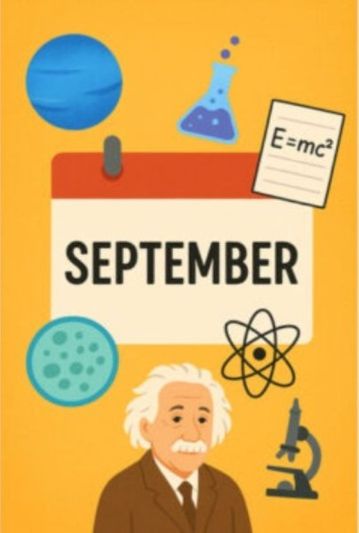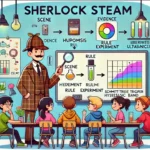Time Capsule: September 2025
Science has always moved forward through moments of discovery. Some of these moments happened by chance, while others came from years of study. This article looks at historical events in September that shaped our understanding of the world.
Surely, each event tells a story of curiosity and change. From distant planets to tiny bacteria, and from rockets to relativity, September undeniably holds milestones that continue to inspire.
September 1, 1957
Juno Discovered
On September 1, 1957, astronomers studied the asteroid Juno in greater detail. Juno was one of the first large asteroids to be found in the belt between Mars and Jupiter.
Its study gave insights into the early formation of the solar system. Asteroids like Juno surprisingly hold ancient materials that reveal how planets were built.
Spacecraft missions continue to study such bodies to help us understand the building blocks of the universe.
September 5, 1666
Formation of the Royal Society of London
The Royal Society of London was formally founded in September 1666. It later became one of the world’s first organized groups for scientific study. Its mission was to promote knowledge through experiments and observation.
Chiefly, this society created a space where scientists could share ideas. Meetings and publications helped spread new findings quickly. It gave credibility to scientific research at a time when superstition was still strong.
Even today, the Royal Society continues to support science. Many famous scientists, including Isaac Newton and Stephen Hawking, have been members. Its role in shaping modern science makes it one of the most influential institutions in history.
September 12, 1905
Einstein Publishes Special Relativity
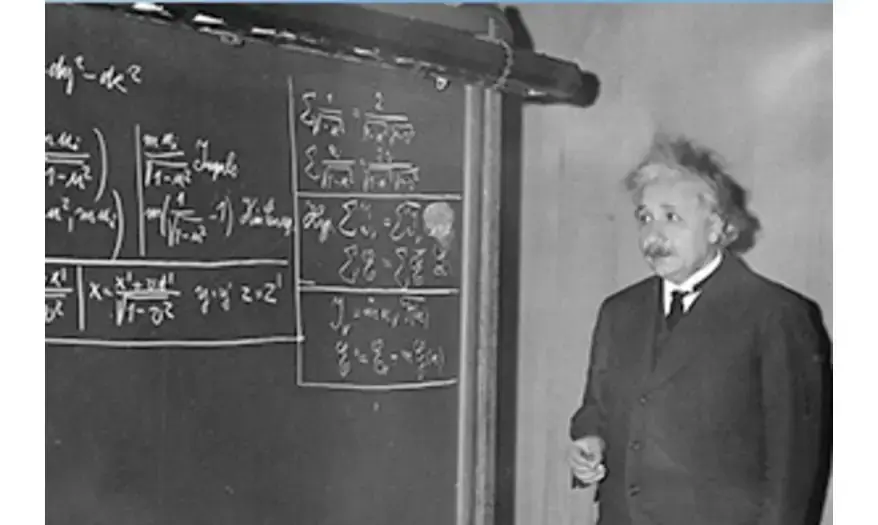
In September 1905, Albert Einstein published his paper on special relativity. Basically, he proposed that space and time were linked, and that the speed of light was constant for all observers.
This idea was revolutionary. It replaced long-held beliefs about absolute space and time. It also introduced the famous equation E = mc², which connected energy and matter.
Relativity changed physics forever. It later paved the way for nuclear power, space exploration, and modern cosmology. Einstein’s work remains one of the most important achievements in science.
September 17, 1683
Bacteria Described by Antonie van Leeuwenhoek
In September 1683, Antonie van Leeuwenhoek sent letters to the Royal Society describing tiny “animalcules.” These were the first known observations of bacteria. Surprisingly, using a simple microscope, he saw living organisms in water and dental scrapings.
Thus, this was a turning point in biology. Until then, people had no idea that such life existed. Leeuwenhoek’s detailed notes showed that an invisible world lived all around us.
Later, the discovery of bacteria led to germ theory and modern medicine. Today, we know bacteria can be harmful but also helpful. They play roles in health, food production, and even technology.
September 19, 1991
Discovery of Ötzi the Iceman
Hikers Erika and Helmut Simon stumbled upon a human body emerging from the ice at Tisenjoch, on the Austrian-Italian border. It was thought to be a modern mountaineer, but then, the remains were soon identified as a naturally preserved mummy more than 5,000 years old. Named Ötzi, the Iceman offered an extraordinary glimpse into the Copper Age, complete with clothing, tools, and even the contents of his stomach. His discovery transformed archaeology by revealing details of prehistoric life, diet, health, and survival in Europe’s high Alps.
September 23, 1846
Discovery of Neptune
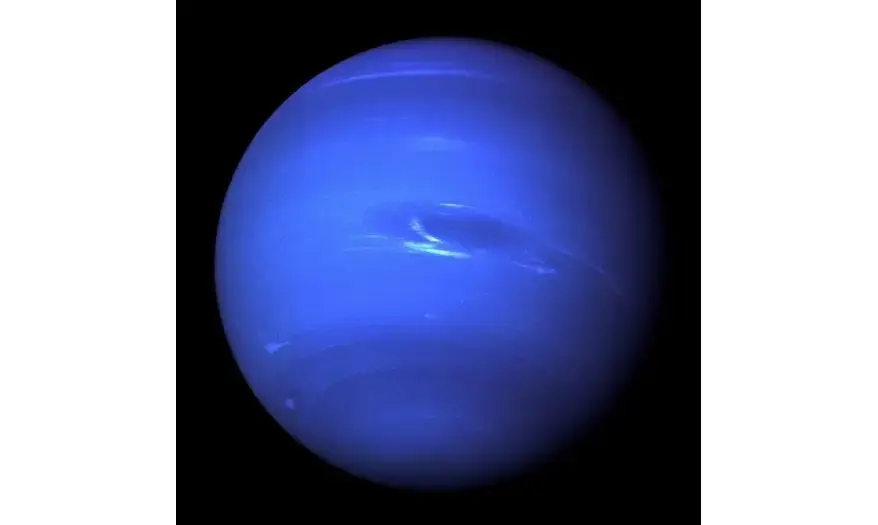
On September 23, 1846, astronomers Johann Galle and Heinrich d’Arrest identified Neptune. They used calculations from Urbain Le Verrier, who predicted the planet’s location by studying irregularities in Uranus’ orbit.
The discovery proved that mathematics could guide astronomy. In addition, it showed that unseen worlds could be found through reason and calculation, not just chance observation. As a result, this marked a new age in planetary science.
Neptune’s discovery also confirmed Newton’s laws of gravity on a cosmic scale. Today, it remains a symbol of the power of prediction in science, and of course, one of the greatest historical events in September.
September 28, 1928
Penicillin Discovered
In September 1928, Alexander Fleming noticed something unusual in his London lab. A mold, Penicillium notatum, killed surrounding bacteria in a culture dish.
This chance observation led to the discovery of penicillin. It became the first widely used antibiotic. As a matter of fact, the drug saved countless lives by fighting bacterial infections that were once deadly.
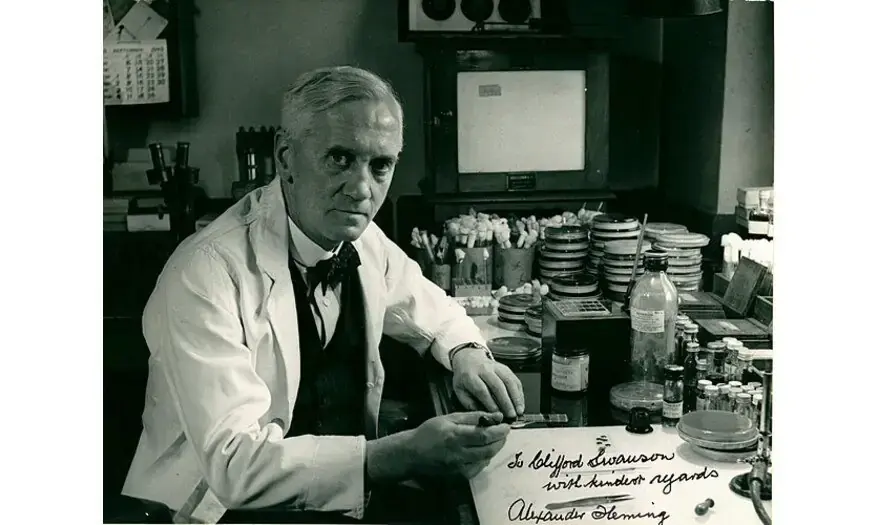
The discovery also opened the door to modern antibiotics. Thus, medicine was transformed, and human life expectancy increased. Penicillin remains one of the greatest scientific breakthroughs of the 20th century.
SpaceX Launches Falcon 1
On September 28, 2008, SpaceX successfully launched Falcon 1 into orbit. Also, it was the first privately developed liquid-fuel rocket to achieve this milestone.
This event proved that private companies could join space exploration. Until then, only governments had launched rockets into orbit. Falcon 1 changed the future of space travel.
The success led to larger projects like Falcon 9 and Starship. Moreover, SpaceX is central to modern space missions, from satellite launches to plans for Mars.
September 30, 1882
First Hydropower Plant
In September 1882, the world’s first commercial hydropower plant began operation in Appleton, Wisconsin, USA. The plant used the flow of the Fox River to generate electricity.
This marked a shift in how people produced power. Instead of relying only on coal, humans started to use natural sources like water. Hydropower became a clean and renewable option.
Today, hydropower plants supply electricity to millions of homes worldwide. The event in 1882 was the beginning of a global movement toward sustainable energy.
Conclusion: Historical Events in September
In conclusion, historical events in September reveal how science and technology have consistently pushed the boundaries of human understanding. From the founding of the Royal Society to the launch of SpaceX’s Falcon 1, each milestone demonstrates the interplay between curiosity, persistence, and innovation. Moreover, these achievements show that progress often comes from both careful planning and serendipitous discoveries, emphasizing the diverse paths that knowledge can take.
Furthermore, by reflecting on historical events in September, we can appreciate how breakthroughs in one era influence generations to come. For instance, early observations of bacteria laid the groundwork for modern medicine, while discoveries in astronomy and physics continue to inspire space exploration and technological advancements.
Therefore, it is evident that September is not just another month on the calendar; instead, it stands as a testament to human ingenuity, perseverance, and the enduring quest to understand our world. Ultimately, remembering these moments encourages curiosity, fosters innovation, and highlights the remarkable legacy of scientific achievement.
Additionally, to stay updated with the latest developments in STEM research, visit ENTECH Online. Basically, this is our digital magazine for science, technology, engineering, and mathematics. Furthermore, at ENTECH Online, you’ll find a wealth of information.
